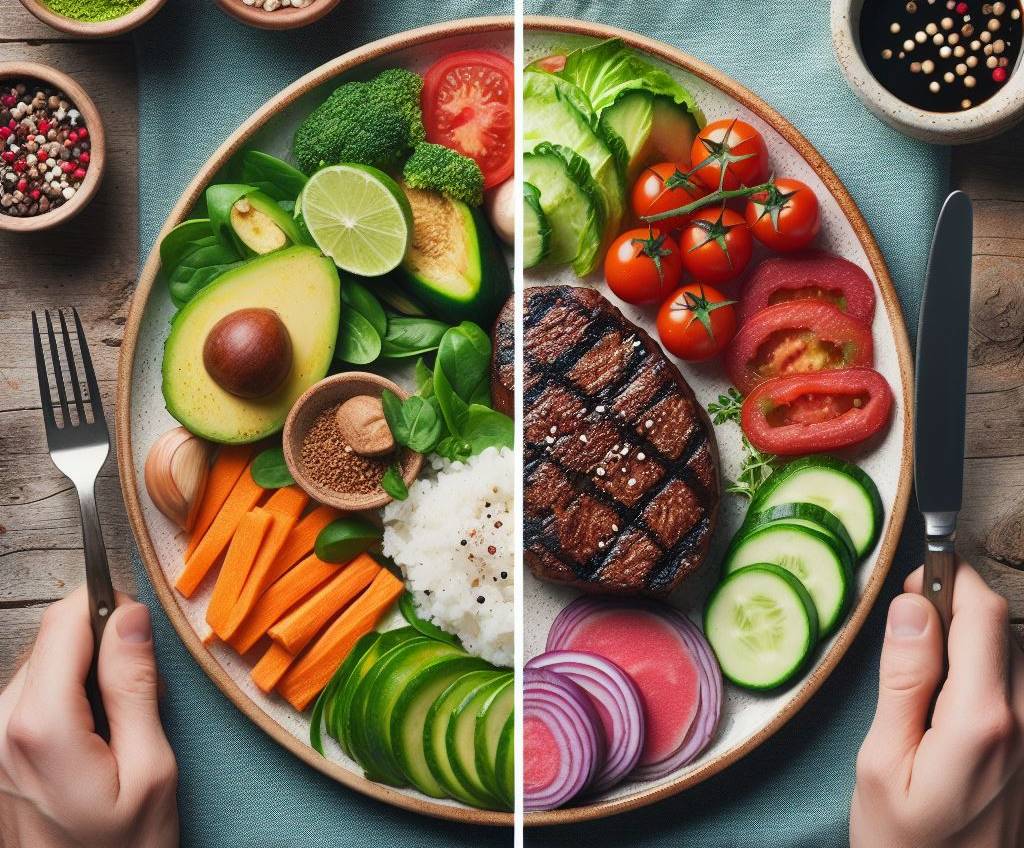
In March 2024, The Guardian reported that plant-heavy ‘flexitarian’ diets could help limit global heating, claiming that new research shows how that could be prevented by widespread adoption of a flexitarian diet based around reducing meat consumption and adding more plant-based food.
Conveniently, finding a study that supports their conclusion:
The researchers found that adopting a flexitarian diet could lower methane and nitrous oxide emissions from agriculture and lower the impacts of food production on water, nitrogen and biodiversity. This in turn could reduce the economic costs related to human health and ecosystem degradation and cut GHG emissions pricing, or what it costs to mitigate carbon, by 43% in 2050. The dietary shift models also show limiting peak warming to about 1.5C can be achieved by 2045 with less carbon dioxide removal, compared with if we maintain our current diets.
Science Advances, Vol 10, No 13
For those of you wondering, a “flexitarian diet” is supposedly a diet which “focuses on whole, plant-based proteins and other minimally processed foods, while enjoying meat, dairy, eggs and fish in moderation.”
It’s basically how they are going to pitch quasi-forced vegetarianism to people who don’t want to stop eating red meat, by taxing or putting an explicit price on greenhouse gas (GHG) emissions to reflect their true economic costs could incentivize polluters to reduce their carbon footprints, though governments have had little success in attempts to bring in such policies.
The Guardian article quotes Professor Jason Hill of Minnesota University, who gives us a hint on how they plan to subtly twist the rhetoric on red meat:
“The overall food system has many players…There’s the producers, the consumers who choose what to eat, and in the US especially, the government, which supports the type of agriculture that leads to excess production of red meat.”
Professor Jason Hill, Minnesota University
With this slight of hand, they’re not going to forcibly reduce the amount of red meat people eat to the point of near-rationing, they’re just going to stop “excess production”.
Critics argue that a flexitarian diet might not provide adequate nutrients, especially if individuals don’t carefully plan their meals, and that the flexitarian diet lacks clear rules, making it challenging for people to follow consistently.
The push to limit our consumption isn’t a conspiracy theory. A recent UN Environment Programme (UNEP) report concludes that novel meat alternatives can likely play a role in supporting a more sustainable, healthier and more humane food system.
“Further, such alternatives can also lessen the pressures on agricultural lands and reduce emissions, thereby helping us address the triple planetary crisis – the crisis of climate change, the crisis of biodiversity and nature loss, the crisis of pollution and waste – as well as address the health and environmental consequences of the animal agriculture industry. More government support, as well as open and transparent research, can help unlock the potential of these new technologies for some countries.”
Inger Andersen, Executive Director of UNEP
The UNEP report also claims that animal agriculture industry is a major driver of climate change: animal GHG emissions, feed production, changes in land use and energy-intensive global supply chains account for almost 60 percent of food-related GHG emissions and 14-20 percent of global GHG emissions.
Citations
A sustainable diet by 2030 is key to solving the climate emergency, June 12, 2019
BMC Nutrition: Targeted policy intervention for reducing red meat consumption: conflicts and trade-offs, 16 August 2022
Novel meat and dairy alternatives could help curb climate-harming emissions – UN, 8 December 2023
Eat Less Meat Is Message for Rich World in Food’s First Net Zero Plan, 26 November 2023
Plant-heavy ‘flexitarian’ diets could help limit global heating, study finds, 27 March 2024
Food matters: Dietary shifts increase the feasibility of 1.5°C pathways in line with the Paris Agreement, 27 March 2024







